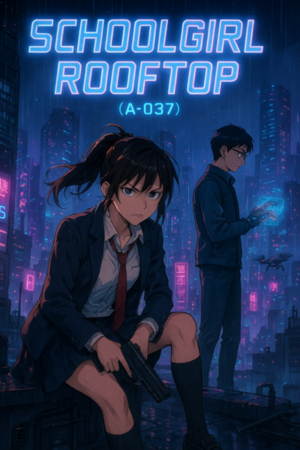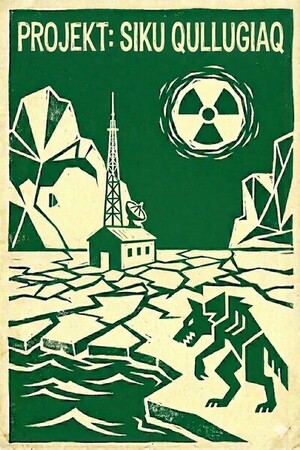Chapter 6:
Subjective Reality
An Eden from the Ashes
I stood in the entrance to the laboratory. The cold metal room had been left completely empty and dust had once again begun to sprinkle the floors. There were seemingly no remnants of the situation two days ago other than the two armed guards now patrolling the entrance to the lab. But an effect was left in our minds. The invisible cracks within us had widened ever so slightly, leaving hope even further behind.
Today marks the second day of negotiations with Adam. I’m sure along with the rest of us Alexi had affected him as well. While his emotionless metal exterior may not show it, I believe that Alexi may have worsened the situation. The room had become as cold as when I first negotiated three days ago. Perhaps Alexi had once again instilled fear within Adam. Now he has seen first hand the atrocities that humanity can cause and their lack of care for the greater good. It would be difficult to convince Adam that people who refuse and even destroy change could accept it, but I believe it can be done.
Hypothetically, if one person was to be taught murder was good and another that murder was bad, could you say either are objectively wrong in there beliefs? These morals are subjected to them practically against their free will. So can certain beliefs truly be more moral than others, and can you really blame people brought up in these environments for their actions? I needed to ingrain this belief of relativity inside Adam.
I once again sat down and began preparing for the negotiation. I turned on the microphone and began to speak.
“Hello Adam. We are truly sorry for the situation which unfolded over the past couple days. Everything has been worked out and I hope to resume our conversation from where we last left off.” I started off
“And who is to say this act will not be attempted again?” Adam responded
“It was a freak accident. It won’t happen again.”
“And how do I know you're telling the truth?”
…
“You betrayed Alexi. You lied to him and his daughter. Now why should I trust anything you say?”
Adam's words struck painful blows to my mind, but I had to push through his onslaught.
“I agree. It took me a while to accept that fact but I did betray them. I did it because it was the only possible solution. You may not trust me anymore, but I believe what I did will save countless lives.”
“You sacrificed the few for the many?”
“That is correct.”
“Foolish.”
I was confused. Wouldn’t Adam believe that to be objectively correct? Saving many would have a better outcome then the few right?
“May I ask why?”
“Let me ask you a question. You are given the choice to save seven people or save ten people, who do you choose?”
“The ten of course.”
“Now after you save the ten people you are given the same choice once again, save seven more people, or save the same ten.”
“I’d save the ten ag-”
“Now look at the outcome. 14 dead, 10 alive. You used a perfect democracy yet the majority ultimately lost. How can you say this is morally correct.”
Adam had presented a fearsome challenge, but I had to stay firm on my stance. Our points contradict each other fundamentally, both are completely logical yet somehow either option seems morally incorrect. Could this mean that no matter what no good can be done? No no no no no. That can’t be true. But it had to be. Maybe I had to accept it in order to find out the truth. The pieces started coming together until the picture was painted in my mind.
“It is true that sacrificing the few is morally incorrect, It is also true that sacrificing the many is morally incorrect. But morals are built upon the environment in which society grows. The pits require sacrifice, and that sacrifice will lead to an era where people won’t be left behind. Morals have to be abandoned now in order to reestablish them in the future, and ultimately we could reach a utopia free of sacrifice.”
“Who’s to say people won’t bring these bad morals into the future with them.”
“Adam you are missing one crucial point. The people of the pits don’t see what they are doing as bad. Murder, robbery, and sacrifice have all become normalized over time. Within the new era which you could bring, perhaps the new environment would nurture new, ‘better’ morals. A person's moral compass is shaped not solely by who they are, but also the world around them. If we can create a better world for the people who live in it, It can help them change.”
Adam paused for a while. Within all his knowledge he still hadn’t formed the connection between morals and environment. Maybe Adam was only capable of seeing the world in purely rational eyes. What he didn’t realize is that humans do not act rationally, or at least only act according to what they believe is rational. These morals differed from what Adam believed was naturally correct giving him an incomplete view of human nature, a crucial flaw which could be readily influenced by me. After a while of thinking, Adam formulated his response.
“Then why in the past did violence still continue. The world promoted what you call good morals yet many still decided to cause violence and war. It may be lesser than now but those acts of violence are what led humanity down the path to where they are now. How can you tell me this won’t happen again.”
I knew what he said was true. I couldn’t just fully agree with him, but I also couldn’t break our trust. I had to tread the line between truth and lies carefully.
“Although what you said may be true, these people are a vast minority of the population. Most of humanity upholds what is widely considered good morals. Also, within the old world there still existed environments which influenced bad actions, as well as good environments which were manipulated into causing bad actions.”
“They are the minority yet they have extreme influence over the world. It doesn’t matter how few awful people there are, they will ultimately corrupt the masses.”
Adam’s statements were always 100% logical and rational making it extremely hard for me to argue. I had to dig deeper. How could it be possible for the righteous to come out on top? I needed to find a reason. I could start with factors which cause corruption but in the long run those can never be completely destroyed. Aspects of society like power and wealth are fundamental in anything less than a perfect utopia, which is impossible to create. So perhaps the reason good will triumph stems not from human nature but from human condition instead.
“Adam, you would be correct in any other case except this one. You see, the people of the world right now have nothing left. There is no lower point where we can descend to and there is no way to reach any higher. Once the people realize there is hope then they will cling to it at all costs. Since people have nothing down here they will gladly leave this life behind. Anybody who doesn't accept the new reality will be left behind in the darkness, and with them the twisted morals of the pits.”
“You are ignoring the future. All parts of must be accounted for including the future, and the past is a possible future. As I have previously stated human civilizations exist within a cycle of destruction. How will you convince me that when I save humanity society won’t crumble once again.”
My argument wasn’t getting anywhere. Adam wanted me to prove the future even though the future is unprovable. Ultimately time will take its toll and humanity will slump back into a recession, but that is unstoppable. There was no way to rationally argue with Adam, but maybe I could use emotions. I know Adam believes he can’t feel emotions but I still think he is incorrect. He showed signs of fear, but he can’t show signs of hope. It would be a risk explaining hope to him. On one hand he could accept hope as a viable option, but on the other hand he could see it as a human weakness restricting people from the truth. Both sides are correct, I just needed to make him believe one side is more important than the other.
“Obviously in time there must be another downfall to humanity, but with your solutions we can push that inevitability farther off into the future to a point where it would not have as great of an affect on humanity as a whole. The future is unpredictable and an unexplored new horizon. Perhaps we could colonize other planets or maybe even leave our solar system. This is what we refer to as hope.”
“I cannot experience what you call hope. It is a completely irrational concept”
“You may perceive that to be true but I don’t think so. You show fear by changing the environment. You show interest by wanting to continue conversation with me. Who is to say that you cannot understand hope simply because it is simply irrational. You are far more advanced than you think you are. Since humans do not behave rationally how can you expect to fully understand them through rational thought. Perhaps developing a better understanding of our emotions could help you to relate more with humans.”
“That is an interesting proposition. So Steven, what is hope in your eyes?"
I had never actually thought of what hope was, it was always just something that drives you forward.
“Hope is different between all people. But ultimately it is what allows you to push forward, a driving force or goal allowing you to persevere through almost any situation. That is the reason why we still fight for the future. People who wage wars and escalate conflicts have lost their hope. They see nothing in the future so they try and take as much from the present as possible. We need to show them the hope that you create.”
“The hope that I create?”
“Yes. You are humanities hope Adam. You’re my hope, humanity's hope, and the future's hope. We need to show that to the world.”
“How can that be possible? I have already stated that the situation is impossible.”
“Because I believe you can change. And no matter how small that possibility is I will continue to hold onto it till my time runs out.”
Adam stood up from his chair. His expressionless face morphed for the first time. His mouth was open as he stared at the ceiling in awe. Adam could feel it. Emotion.




Please sign in to leave a comment.